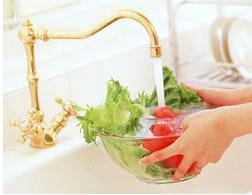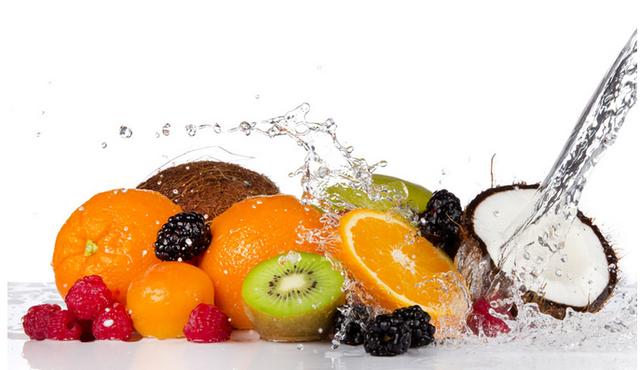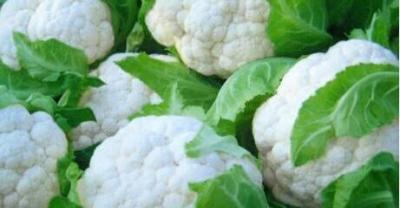Rumors reveal: can brine soak in fruits and vegetables really wash away pesticide residues?
Many people worry about pesticide residues in vegetables and fruits bought in the market, so they do all kinds of washing before eating. The most common is that people always like to add some salt when washing melons, fruits and vegetables, thinking that salt can kill bacteria and remove pesticide residues from the skin. There is even a special launch of fruit and vegetable washing salt. But does this really work?

Salt is the king of hundred flavors, a commonly used condiment. If cooking or cold dishes do not add salt, it is simply tasteless. In addition, in addition to seasoning, salt also has an insecticidal effect, killing slugs, snails, leeches and other molluscs (insects) with mucus. However, there is no scientific basis for the theory that "salt water can effectively remove pesticides". Because the chemical composition of salt is relatively stable, the removal rate of methamidophos and dimethoate is not excellent. Due to the salting-out effect caused by salt, it may be more difficult for residual organophosphorus pesticides to be washed out from melons and fruits. So it is water that actually works when soaking fruits and vegetables with salt water. Its function is only: salt can accelerate the dehydration of vegetables, and then bring out some pesticides that have entered the tissue, but the effect is very low.
In fact, to remove pesticide residues in vegetables, melons and fruits, you only need to wash them repeatedly and fully with clean water. Of course, under the guidance of the national policy of advocating the use of high efficiency and low toxicity, some low-toxic pesticides are becoming more and more dominant, and the impact on people will be so small that they will be ignored.
Here are some convenient and feasible ways to reduce pesticide residues:
1. Soaking in alkaline water: most pesticides are acidic, soaking in alkaline water can neutralize the reaction, and the effect of removing pesticide residues in vegetables is better. So one of the easiest ways to clean pesticide residues in fruits and vegetables is to use edible alkali. Generally, add 5 grams of edible alkali to 500 ml of water to make alkali water, put the fruits and vegetables after initial washing into alkali water, mix enough alkali water according to the amount of vegetables, rinse fruits and vegetables with water after soaking for 15 minutes, and wash them repeatedly for about three times.
two。 Amoy rice water immersion washing method: at present, the majority of vegetable farmers, fruit growers mostly use organophosphorus pesticides and chloroformate pesticides, these commonly used pesticides encounter alkaline solution, generally quickly lose most of the toxicity, while Amoy rice water is weakly alkaline, can play a detoxification effect. If the uncut vegetables and fruits are first soaked in rice washing water for a few minutes, and then rinsed with clean water, most of the pesticide residues on the surface of vegetables and fruits can be removed or removed.
3. Water immersion washing method: generally wash off the surface dirt with clean water and remove the visible stains. Then cover the fruits and vegetables with water for about five centimeters and soak for about 10 minutes. Detergents such as fruit and vegetable detergents can be added if necessary to increase the dissolution of pesticides. After washing and soaking for 2 or 3 times, most of the pesticide residues can be removed.

- Prev

The following 10 kinds of pesticides are prohibited in fruit trees. Have you been hit by fruit farmers?
Ammonium phosphate: do not use in peach trees. Methyl dichloride: it is prohibited in all kinds of fruit trees. Dichlorvos: drupe fruit trees are prohibited. ...
- Next

The peasant woman pulled out her teeth on the street for 100 yuan. After being infected with HIV, she had a nervous breakdown and committed suicide with pesticides.
On the streets of some small towns, we often see a lot of stalls and vendors. I don't know if you have observed carefully, even dentists are among them.
Related
- Fuxing push coffee new agricultural production and marketing class: lack of small-scale processing plants
- Jujube rice field leisure farm deep ploughing Yilan for five years to create a space for organic food and play
- Nongyu Farm-A trial of organic papaya for brave women with advanced technology
- Four points for attention in the prevention and control of diseases and insect pests of edible fungi
- How to add nutrient solution to Edible Fungi
- Is there any good way to control edible fungus mites?
- Open Inoculation Technology of Edible Fungi
- Is there any clever way to use fertilizer for edible fungus in winter?
- What agents are used to kill the pathogens of edible fungi in the mushroom shed?
- Rapid drying of Edible Fungi

